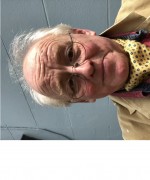The history of recorded sound - and how recent it is!
Tim Weeks
- Region:
- Anywhere
- Notice Period:
- Emergency (maybe less than one week's notice)
- Type:
- Professional
- Fee:
- Paid: £250 plus expenses if further than 60 miles from Chichester.
- Category:
- Entertainment
- Updated:
- 23rd July 2023
- Tagged:
- Music | Edison | His Master's Voice | Recording
Playing original recordings on original phonographs and gramophones I trace the development of recorded sound from the late 19th Century as a scientific innovation, through its first flourishing as a popular novelty in the Edwardian period, its use for bringing songs from the music halls to troops in the trenches of the Great War, on to the jazz bands of the roaring 20s then, (following the introduction of electric recording in 1929) the crooners and swing bands of the 30s and 40s. The talk is illustrated with slides of the inventors who made it possible (Thomas Edison, Alexander Graham Bell, Emile Berliner) and the entrepreneurs (Fred Gaisbourg, W.E. Hough) who saw the commercial potential and created the music business as we know it. Depending on the audience I can either stress the technological developments or the social and emotional aspects of what they did. I can also speak with the benefit of 40 years practical experience on how gramophones actually work, and the relative merits of different motors, reproducers and horns, although those details are probably best left unless they come up in the Q&A section at the end! Technical Requirements I will bring all the phonographs, gramophones, wax cylinders and 78rpm discs with me, set them up on a standard six foot table and check they’re all working before the talk begins. Depending on the size and acoustics of the room it is not normally necessary to amplify the machines, although for larger venues (80+ seated in rows, 60+ dining at tables) this can generally be achieved simply by holding a microphone in front of the horn that’s playing. The slides will all be on a memory stick, assuming that a projector and screen are available. If not I can hire them, and a P.A. system if required, although that will incur an extra charge. Ideally all these details will be confirmed with the organiser prior to the event to ensure a smooth running, interesting and entertaining event!
Views: 206 | Enquiries: 0About Tim Weeks
Having collected gramophones and phonographs since the 1970s I ran a shop in London during the 80s and 90s, buying, selling and repairing them. In 2017 I was recruited by the BBC’s Repair Shop and have since fixed numerous machines for them, including the closing items of the first two series. All of my TV work is available on BBC iPlayer, or for a clearer idea of how I deliver a talk please go to https://www.youtube.com/watch?v=Eo8-aM0A9og&t=131s for a video I made explaining how to tell the difference between a genuine antique and a modern reproduction.
Send a message to the speaker
If you are interested in this talk and wish to contact the speaker, please complete the following form:
